Obama worked for minimum wage or close to it, scooping ice cream and waiting tables. These eight former Presidents also started at the bottom before they took the highest office.
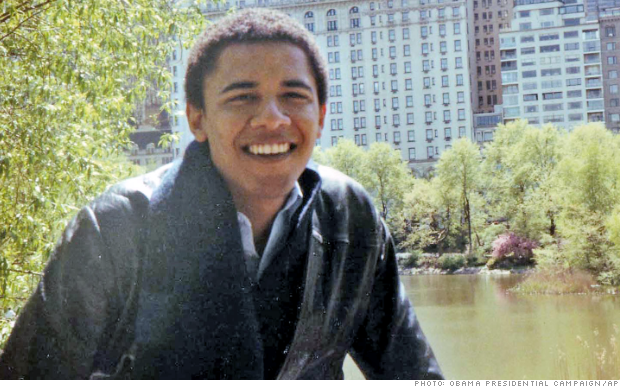
President Obama recently said in a magazine INTERVIEW that he was paid minimum wage or close to it in his first four jobs.
He scooped ice cream at Baskin-Robbins, worked as a painter and waited tables at an assisted living facility.
Obama spent one summer clearing construction sites on the Upper West Side when attending Columbia University.
While some Presidents (think Roosevelts, Bushes, JFK) are pretty well-off compared to the majority of people they're elected to represent, Obama is not alone. There are plenty of former commanders-in-chief who knew what it was like to work hard for low wages.
He scooped ice cream at Baskin-Robbins, worked as a painter and waited tables at an assisted living facility.
Obama spent one summer clearing construction sites on the Upper West Side when attending Columbia University.
While some Presidents (think Roosevelts, Bushes, JFK) are pretty well-off compared to the majority of people they're elected to represent, Obama is not alone. There are plenty of former commanders-in-chief who knew what it was like to work hard for low wages.
Ronald Reagan: Lifeguard, dish washer
Reagan lifeguarded for several summers at Rock River in his hometown of Dixon, Ill., while in high school. He reportedly saved 77 lives.
He attended Eureka College in Illinois on a partial football scholarship and covered the remaining cost by washing dishes at his fraternity house.After graduating in 1932, Reagan got a job as a radio sportscaster at WOC in Davenport, Iowa. The radio station paid him $10 per game ($174 in today's dollars).
Reagan, of course, eventually went on to Hollywood.
Gerald Ford: Burger flipper
Ford helped out at his stepfather's paint store and grilled burgers at a local restaurant while in high school.
He also played a lot of football, eventually playing center for the University of Michigan. Both the Green Bay Packers and the Detroit Lions offered him contracts, but Ford turned them down because he wanted to attend law school.
Ford didn't gain admission immediately, so he got an assistant football coaching job at Yale, making $2,400 for the year in 1935. That would be $42,676 in 2014 dollars. He also coached boxing, helping him to pay down his debts and get a foot in the door at Yale Law School, where he was admitted in 1938.
He also played a lot of football, eventually playing center for the University of Michigan. Both the Green Bay Packers and the Detroit Lions offered him contracts, but Ford turned them down because he wanted to attend law school.
Ford didn't gain admission immediately, so he got an assistant football coaching job at Yale, making $2,400 for the year in 1935. That would be $42,676 in 2014 dollars. He also coached boxing, helping him to pay down his debts and get a foot in the door at Yale Law School, where he was admitted in 1938.
Herbert Hoover: Miner
While still a teenager, Hoover and a friend started a company that sold and repaired sewing machines. The business failed, but it was not the future president's only brush with entrepreneurship.
He enrolled at Stanford in 1891, in the university's first class. Although tuition was free at the time, students still had to pay for room, board and books. To cover the costs Hoover ran a laundry service, a concert series and a campus paper route. He made a profit selling the laundry service to another student, allowing him to graduate with no debts and $40 in his pocket, according to a biography written by Amy Ruth.
After graduating, Hoover took a job pushing carts underground in mine shafts in California. He earned $2 a day, working 70 hours a week, according to presidential historian Richard Norton Smith. That daily wage is equal to $56 today.
Richard Nixon: Produce buyer
"You could literally say they were dirt poor," said Barbara Perry, a co-chair of the Miller Center Oral
History Program at the University of Virginia.
Nixon's financial troubles stemmed from the failed lemon ranch his parents owned until 1922. His father then opened a combined grocery store and gas station in Whittier, Calif., where the entire family worked.
Nixon would get up every morning before school to go into Los Angeles and check out the available produce selection, said historian Richard Norton Smith.
In 1930, Nixon enrolled in Whittier College, and later won a scholarship to Duke University's law school.
Lyndon Johnson: Road crew
In 1927, Johnson enrolled in Southwest Texas State Teachers College. He was a student-teacher at a small Hispanic school in an impoverished area.
When Johnson graduated in 1930, his first teaching job paid $1,530 ($21,796 when adjusting for inflation) for the year. He worked briefly as a teacher before getting a job as a Congressional aide.
Jimmy Carter: Peanut farmer
Carter worked on his parents' Georgia peanut
farm as a boy. By the time he was 10 years old, Carter was hauling
produce into town to sell.
He left Georgia to attend the U.S. Naval Academy. After serving in the Navy for several years, Carter moved his family back to the farm when his father died. A terrible drought devastated the farm in 1954, leaving him a profit of just $187 ($1,654 in 2014 dollars) that year.
Carter successfully turned the farm around before entering politics.
He left Georgia to attend the U.S. Naval Academy. After serving in the Navy for several years, Carter moved his family back to the farm when his father died. A terrible drought devastated the farm in 1954, leaving him a profit of just $187 ($1,654 in 2014 dollars) that year.
Carter successfully turned the farm around before entering politics.
Bill Clinton: Congressional clerk
Clinton attended Georgetown University as an
undergrad, but was worried about how to foot the bill. He received some
scholarships and help from his parents. His stepfather owned a Buick
dealership and his mother was a nurse.
Clinton writes in his autobiography that he was relieved when offered a part-time job as a clerk for the U.S. Senate Foreign Relations Committee that paid him $3,500 ($25,699 in inflation-adjusted dollars) for the year.
"Though I never told anyone at the time, I was afraid I'd have to leave Georgetown and come home, where college was much less expensive," he writes.
Clinton writes in his autobiography that he was relieved when offered a part-time job as a clerk for the U.S. Senate Foreign Relations Committee that paid him $3,500 ($25,699 in inflation-adjusted dollars) for the year.
"Though I never told anyone at the time, I was afraid I'd have to leave Georgetown and come home, where college was much less expensive," he writes.
George H.W. Bush: Clerk
Let's face it, Bush 41 didn't have to pinch pennies.
"He is completely of the New England gentry class, but he wanted to try and make it on his own," said presidency expert Barbara Perry.
After serving in World War II and then finishing Yale, Bush moved his family to Texas with hopes of making it in the oil business. He first took a job as clerk for an oil-drilling company owned by a friend's father, earning $375 monthly ($3,748 in today's dollars).
"He did want to get away from the family establishment, and not to take that away from him, but he could have always gone back to Greenwich," Perry said.
But the clerk job didn't last for long. In 1950, he and a friend started their own oil company. It later merged with Zapata Petroleum, and Bush became president of one of its subsidiaries.
"He is completely of the New England gentry class, but he wanted to try and make it on his own," said presidency expert Barbara Perry.
After serving in World War II and then finishing Yale, Bush moved his family to Texas with hopes of making it in the oil business. He first took a job as clerk for an oil-drilling company owned by a friend's father, earning $375 monthly ($3,748 in today's dollars).
"He did want to get away from the family establishment, and not to take that away from him, but he could have always gone back to Greenwich," Perry said.
But the clerk job didn't last for long. In 1950, he and a friend started their own oil company. It later merged with Zapata Petroleum, and Bush became president of one of its subsidiaries.
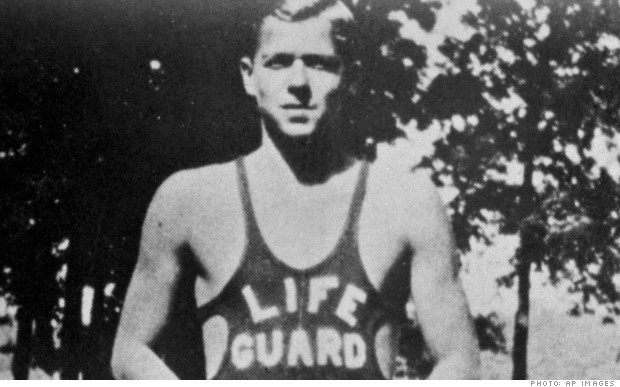
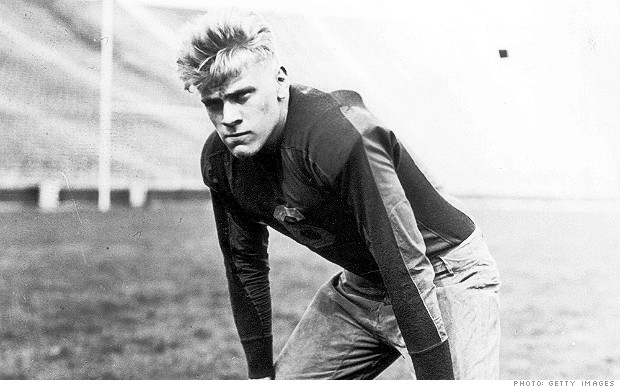
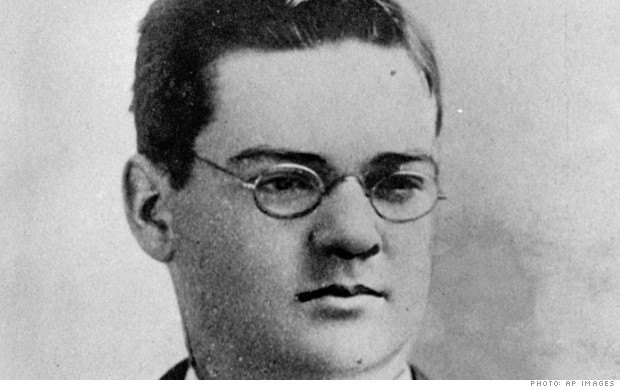
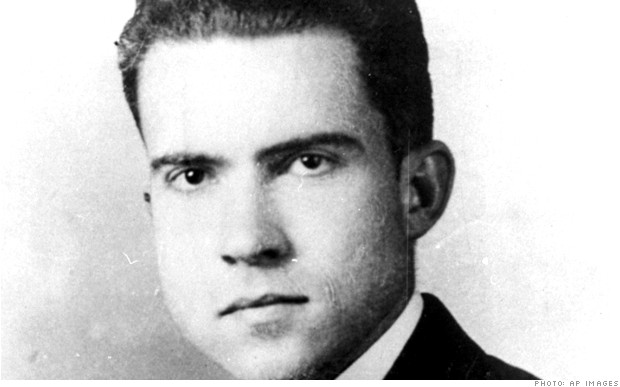
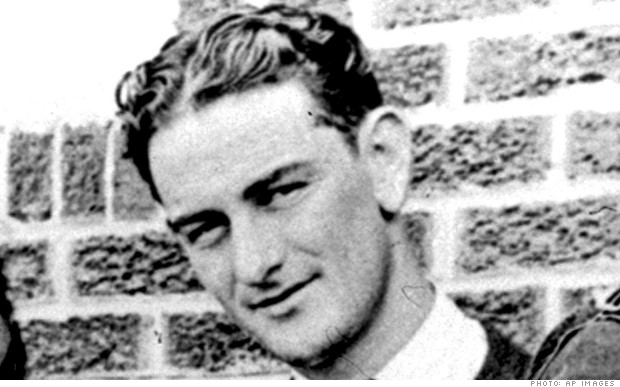
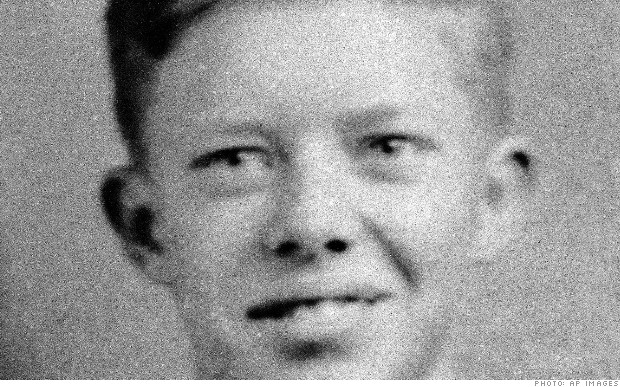
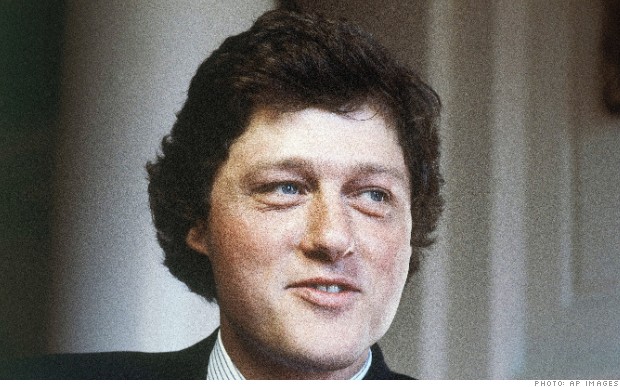
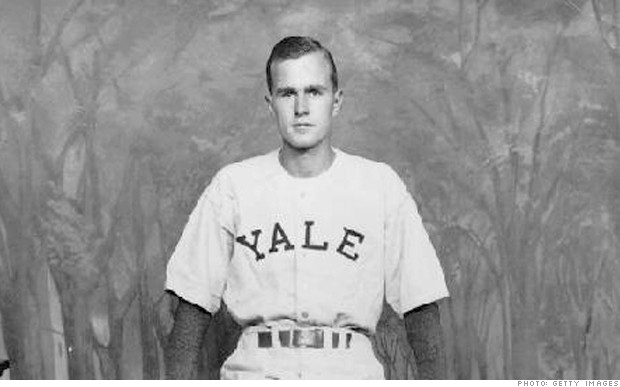
No comments:
Post a Comment